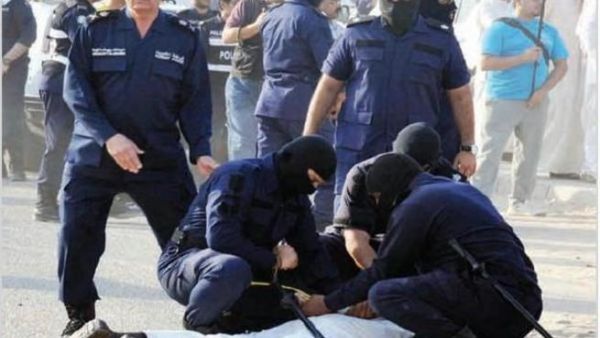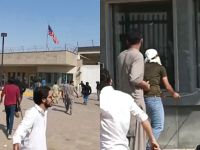In the middle of a politically charged season in the US, a sensationalist appeal letter from a small underclass in Kuwait has mustered some attention amid all the cacophony from the big gunning causes vying to influence the vote. At a time when the US electoral agenda has hooked itself to the Middle East, as Mitt Romney outlines his Middle East vision for all to see, an oft-forgotten group in the tiny oil emirate of Kuwait are sticking their heads above water to peg their cause to the debate. The minority disenfranchised group who feel particularly trampled by the country they call home are the ‘bedoon’ (literally meaning “without”, not to be confused with Bedouins).
Kuwait's bedoon are directing their mini-campaign to the US at a sensitive time in Arab-American relations, where the Middle East could be a deal breaker given that neither of the two main candidates can be particularly convincing on domestic issues. The bedoons’ demands are fairly simple: they want detained political activists to be freed, and demand the right to citizenship. This latest flare-up began on 2 October, when large numbers of the citizenship-less group who have long lived in Kuwait gathered in a rare public square in the semi-rural Jahraa governorate to demand civil rights and better treatment by the authorities.
Their story is a fairly complicated one. Most bedoon are Arabs from tribes who settled on the outskirts of Kuwait--a smattering are also of Persian descent, but these tend to live in the urban centre of Kuwait City. During the 1990s, following the ouster of Iraqi forces from Kuwait by an American-led coalition, the bedoon lived in a perilous, almost unbelievable limbo: without “citizenship” recognized by any country, they could not register for Kuwaiti ID cards. This left them without the ability to register their children in schools, find legal employment or even get full medical care. Yet it wasn’t always thus.
During the 1980s, at a time when Kuwait’s parliament had been disbanded by the then-Emir, Sheikh Jaber al Ahmad al Sabah (brother of the current incumbent), the Kuwaiti authorities had encouraged the bedoon to fill the ranks of the state’s security and military apparatuses. Although they lacked the legal definition of citizenship--which was itself limited at the time, they were given the same generous social security provisions as Kuwaitis enjoyed. They had little to complain about, in fact.
All this changed with the Iraqi invasion of Kuwait on 2 August, 1990. The bedoon reportedly sided with the Iraqi occupiers in large numbers (although this is somewhat debatable): having little real claim to the country itself, there was no reason for them to stick in the Iraqis’ throats. When the US removed Saddam’s army from the tiny Gulf state, the tables were finally turned.
One of the reported preconditions for American military intervention was the re-institution of parliamentary democracy in a free Kuwait. The bedoon found themselves stateless at a time when having citizenship actually would have meant something. At the same time, new procedures in the Kuwaiti public sector, including the army and the police, meant that most had no jobs any more. To add to this, they were stuck in a Kafkaesque dilemma: without proper identification papers from Kuwait, no other country would accept them. For those bedoon who had managed to make savings, the only way out was to buy citizenship of sundry Latin American states. Then the bedoon became a domestic political issue.
With the reinstitution of democracy, following the 1991 liberation, came the rise of tribal politics in the country. Under Kuwait’s strict nationality laws, it was nearly impossible for the bedoon to become citizens--one would have had to inherit the right. Still, thousands of former bedoons had been granted citizenship in exceptional circumstances. This created a citizenship divide within the same extended families and tribal alliances. A number of Kuwaiti MPs, voted in through the loyalty of their own tribesmen, were now tied to the bedoon question--they had bedoon in their own tribe, and some of those who had voted for them were former bedoon (it is a bit like Latino Americans' attitudes to immigration).
This incongruous phenomenon picked up incredibly after the 2003 US occupation of Iraq--with the former threat gone, Kuwaiti politicians now felt more secure to take up pressing domestic issues, clean up their own house. Equally, with international attention now focused on Iraq's smaller, southerly neighbour, they had to make headway on this human rights issue. Yet when much-promised reforms and improvements to the bedoon plight failed to materialize, they grew restless--precipitating this month’s protest.
The call to Barak Obama and the US is in a way appropriate. It would be embarrassing, after all of the hoops which consecutive American administrations have gone through to preserve the integrity of Kuwait, for that country to then turn out to deny political and civil rights for nearly 200,000 people who would have been counted as citizens anywhere else.
What do you think of the plight of these Bedoon, still suffering persecution in times of so-called Arab Springs?







